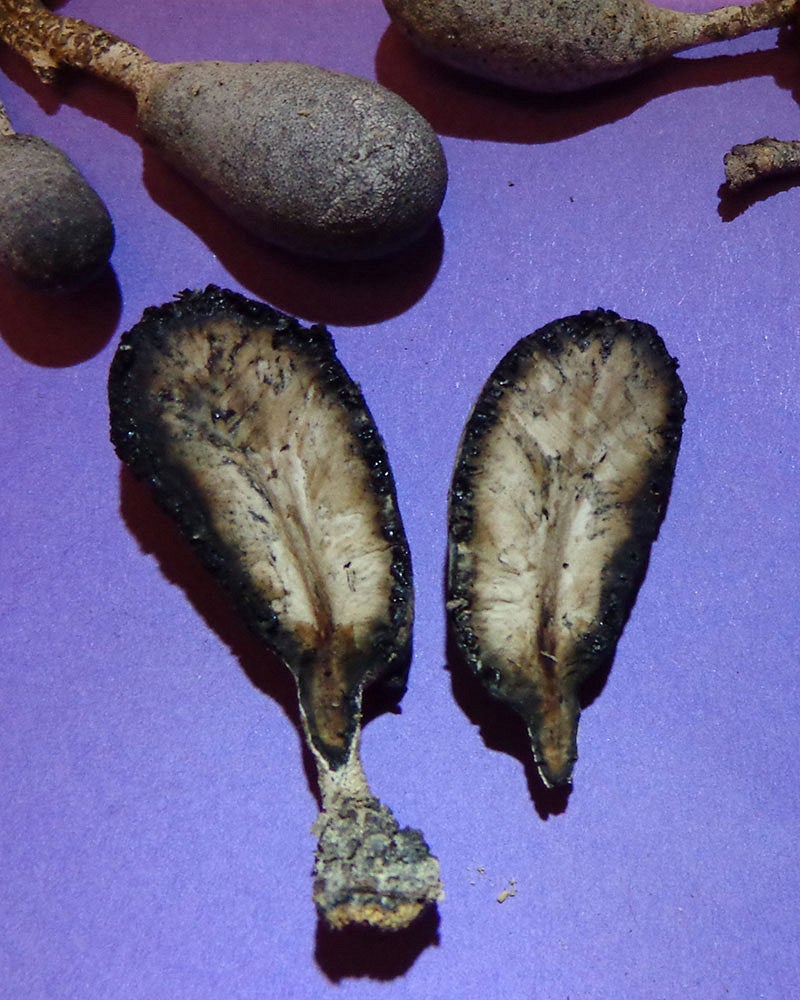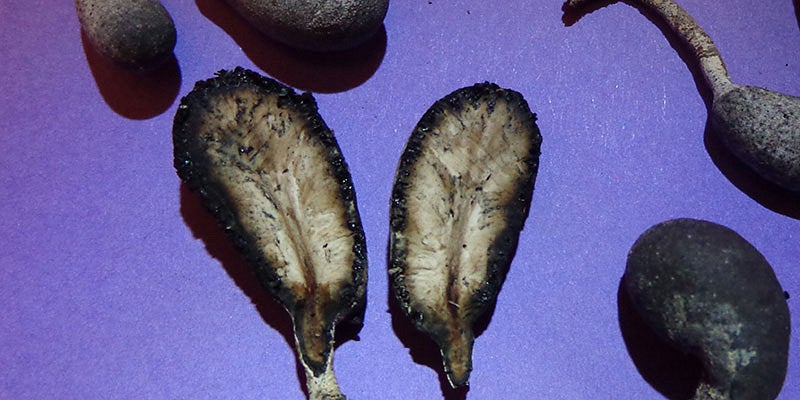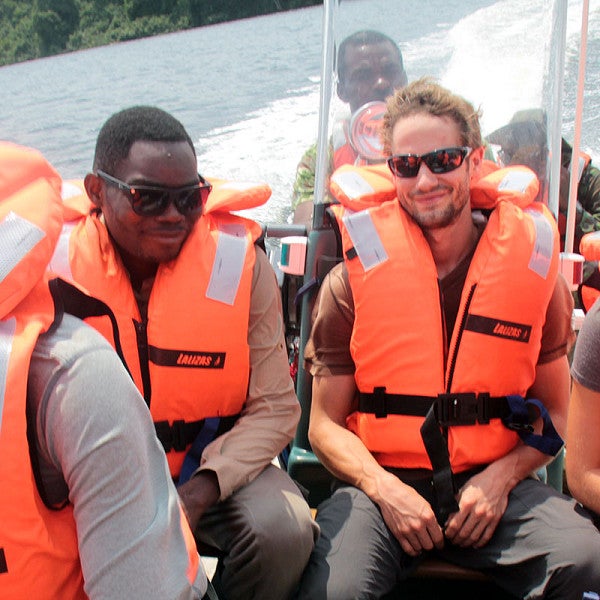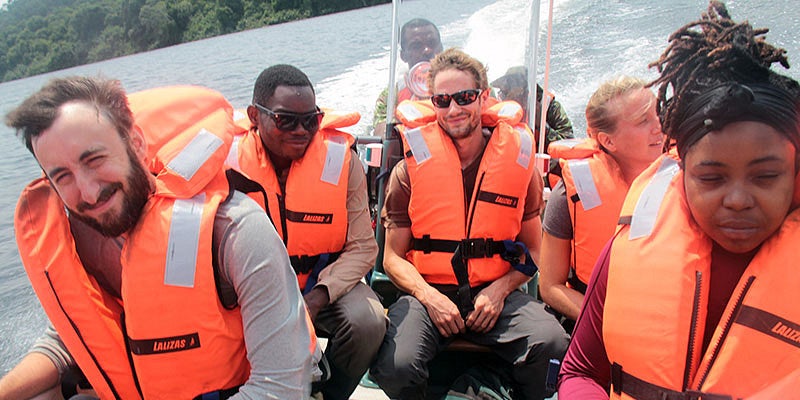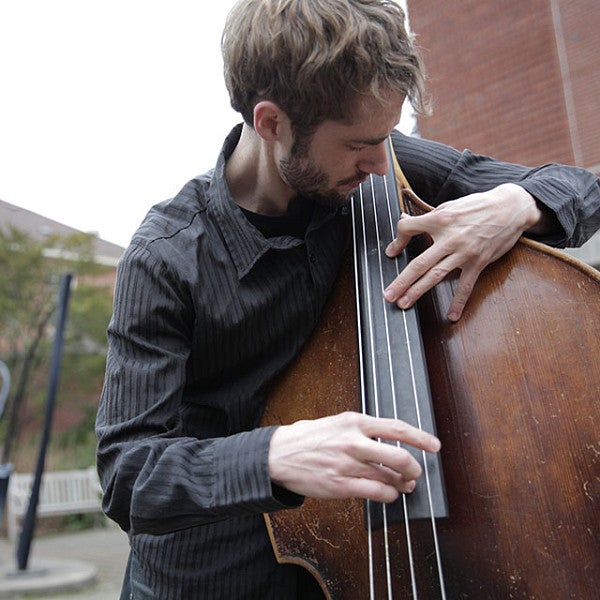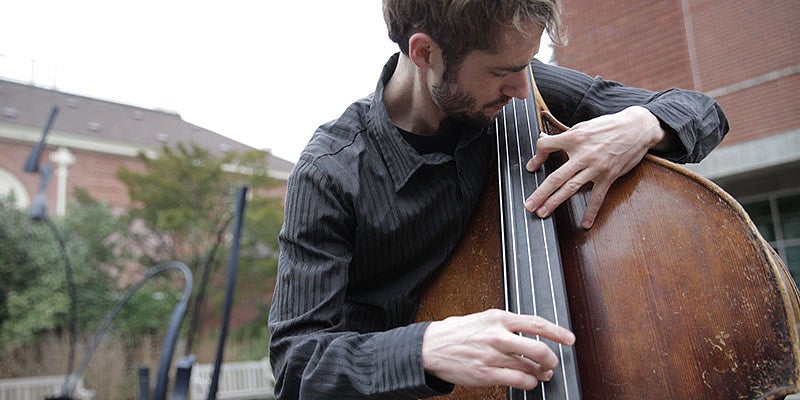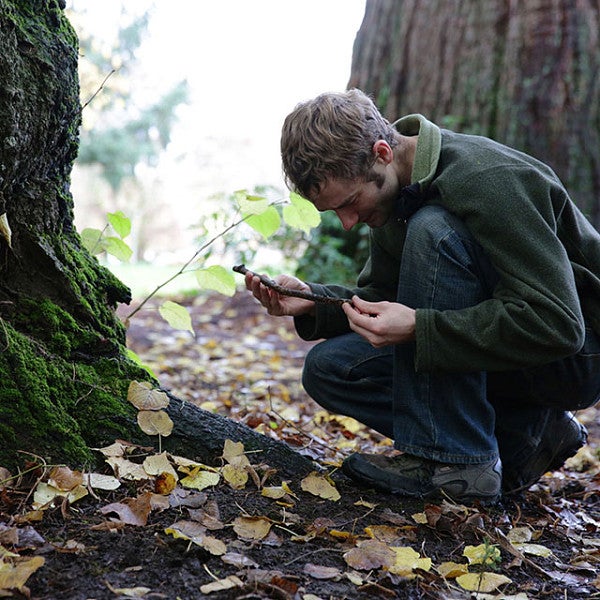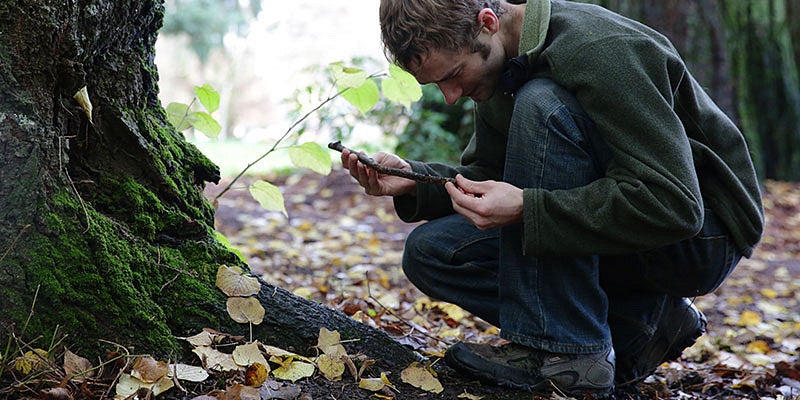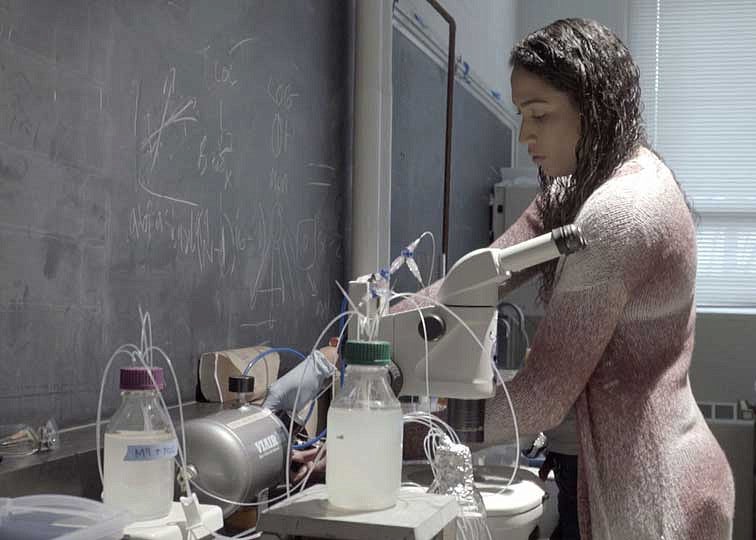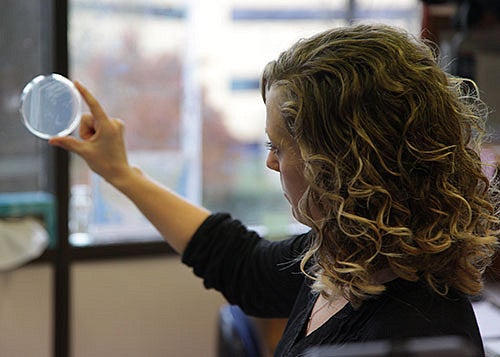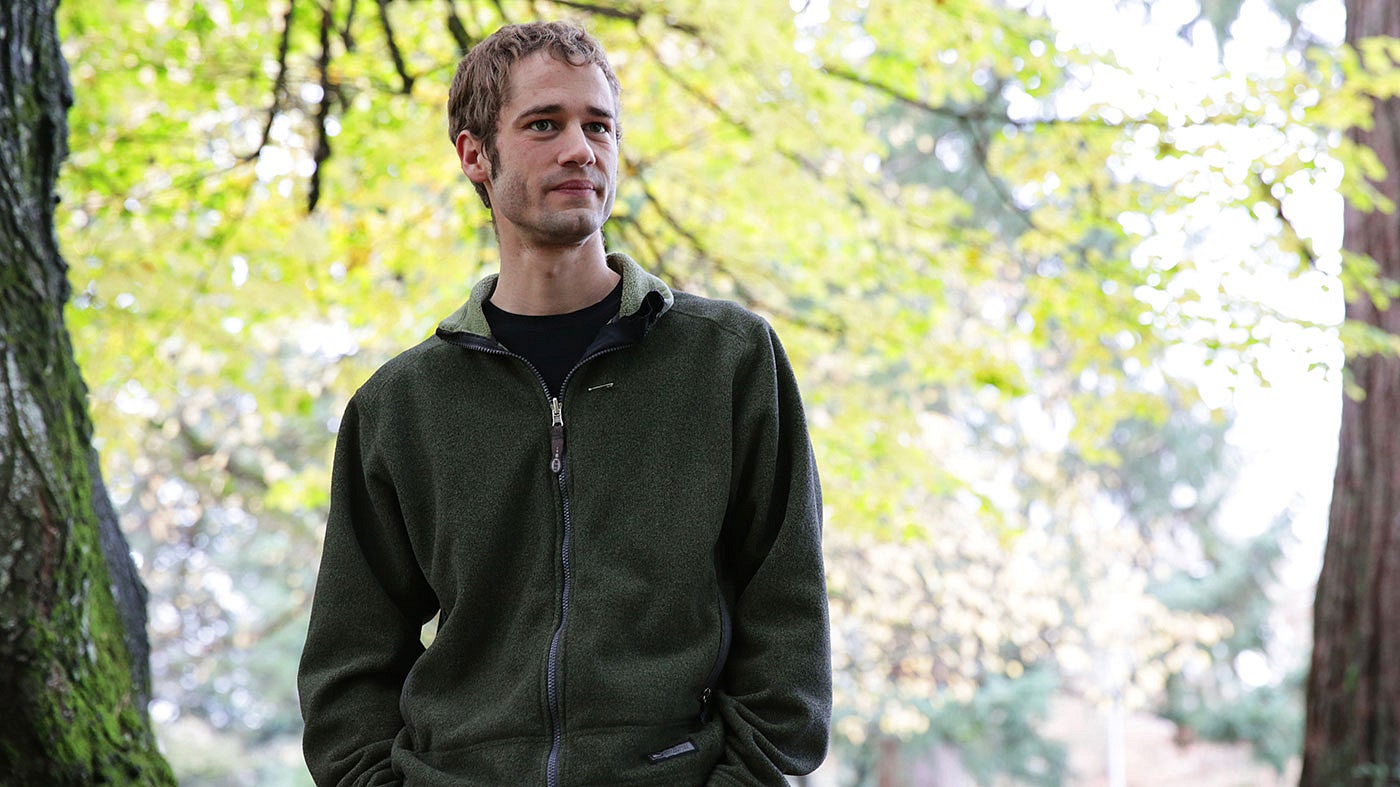
Bluegrass Biologist
Bluegrass Biologist
Bluegrass Biologist
BY ED DORSCH, BA ’94, MA ’99
Thirty-one-year-old undergraduate biology student Aaron Nelson took a nontraditional route to the University of Oregon from Sioux Falls, South Dakota. Lured by Oregon’s mountains, forests and rugged coastline, the first-generation college student headed west at 19 and worked various jobs, including taxi driver, cook and wildland firefighter, before earning his associate’s degree at Lane Community College and enrolling in the UO’s biology honors program.
ALDER STREET — "HOME"
The lowly fungus can be as important to tropical forest ecosystems as towering trees. In biology professor Bitty Roy’s lab, students—including undergraduates like Nelson—study fungi from Ecuador and Africa that are critical to the global carbon cycle. Working in the lab has given Nelson opportunities to participate in genuine research, gather specimens in Africa, and even create a new scientific term: Viaphytism.
What’s Viaphytism? It’s a way for essential fungi to spread throughout the forest (besides just sending spores out into the air). Nelson studies what happens when the fungi spend part of their life cycle in leaves and disperse when the leaves fall. His discoveries could help unlock clues about the spread of agricultural pathogens and important connections between forests and climate change.
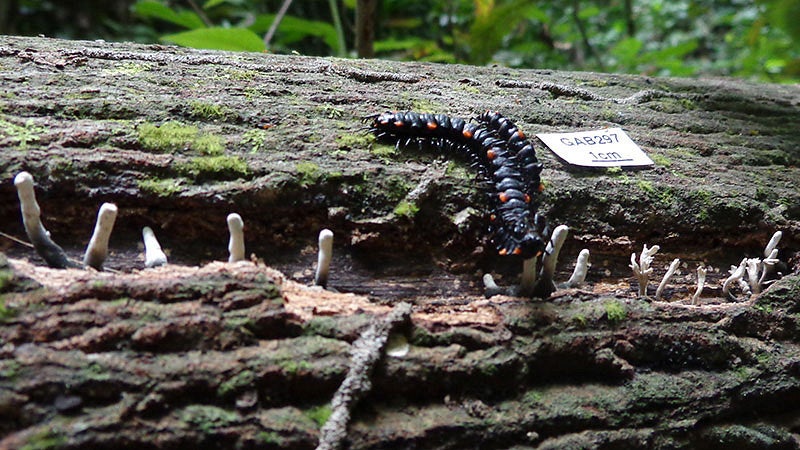
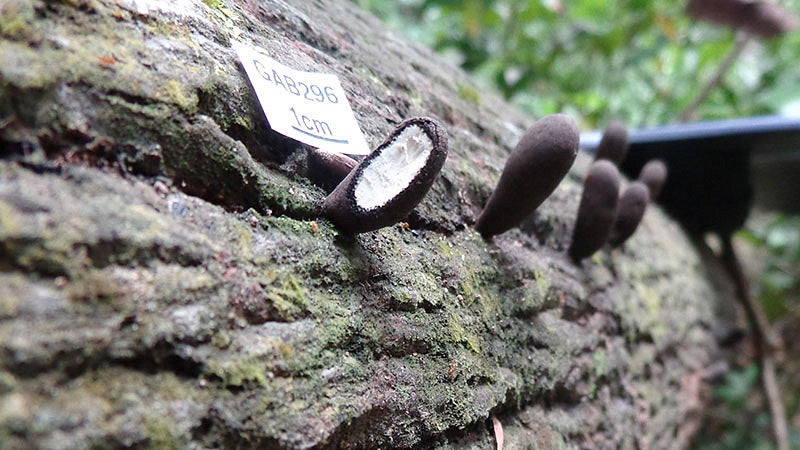
Nelson’s passion for research has taken him across the Northwest and around the world. He studied the impact of climate change on native plants in Oregon and Washington and the feeding behavior of jellyfish in the Puget Sound. In Gabon, Africa, he worked with a local mycologist to gather fungi growing on termite mounds and elephant dung. Back on campus in the Roy Lab, Nelson extracts DNA from these samples, as well as specimens from Ecuadorian rainforests and other sites, for sequencing and identification.
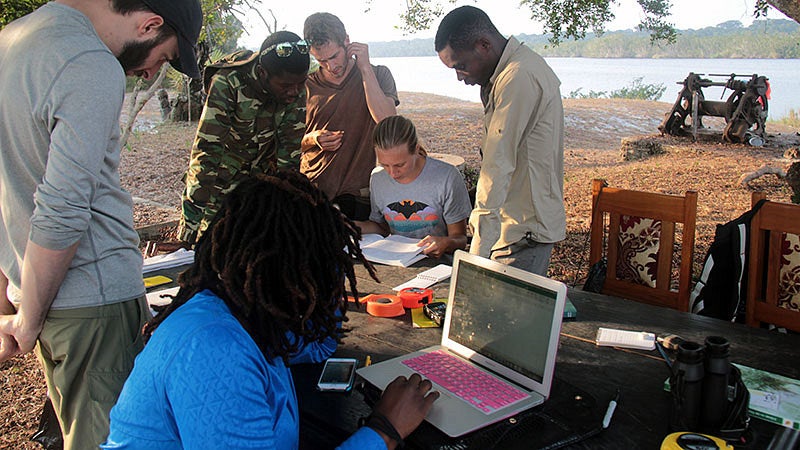
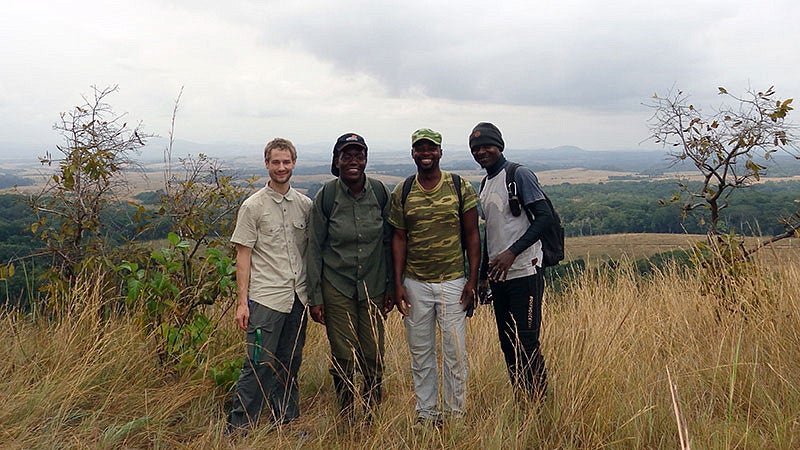
Nelson plays bass and mandolin with Eugene bluegrass band Alder Street. He played viola in grade school, then picked up the bass and joined a cover band as a teenager. Working in high-school is not unusual, but Nelson’s part-time job was a bit different than most — playing bar gigs in farm towns across South Dakota and Minnesota.
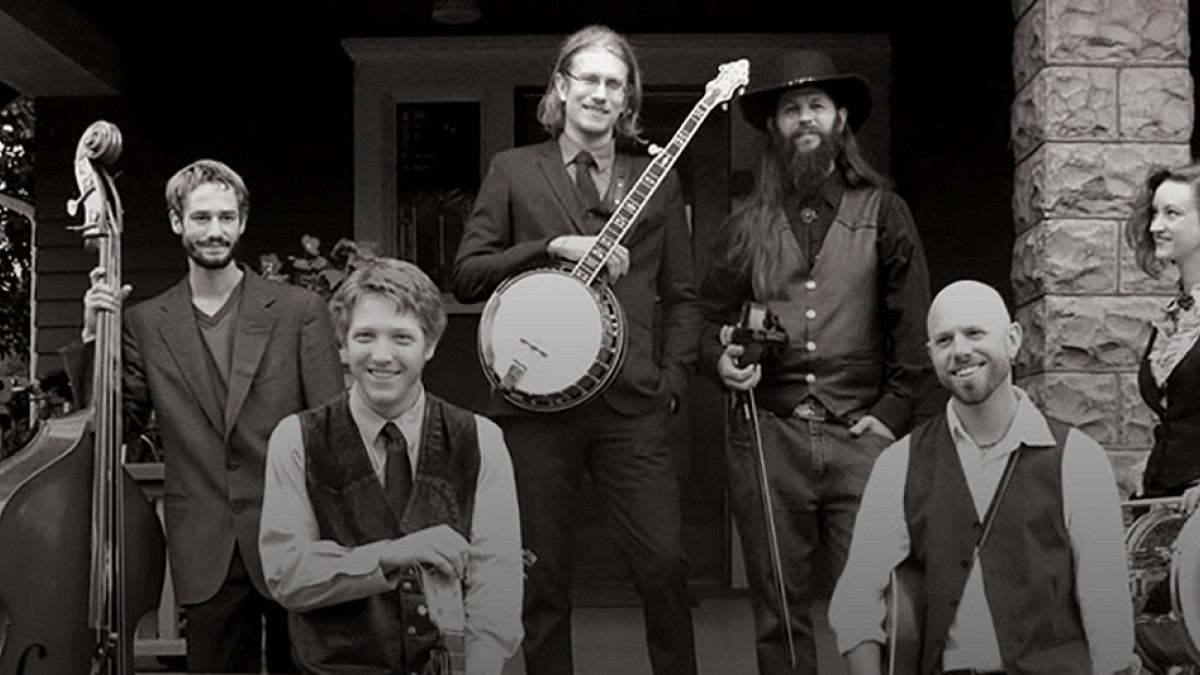
Scholarships, including funding for nontraditional students and an award from the McNair Scholars Program, helped Nelson cover the costs of school. He also received an award from the Undergraduate Research Opportunity Program for his research project, “Fungal Endophytes from an Ecuadorian Cloud Forest.”


